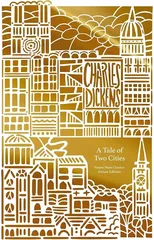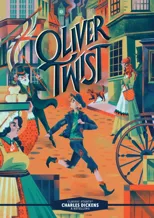Mugby Junction by Charles Dickens, Fiction, Classics, Literary, Historical
(Autor) Charles Dickens"Mugby Junction," first published in the 1866 Christmas issue of Charles Dickens's weekly magazine "All the Year Round," is one of the author's later fictional works, written only four years before his death in 1870. Dickens vowed to write a Christmas story every year after the resounding success of "A Christmas Carol" in 1843, and the three stories collected in this volume are holiday tales of kindness and redemption. Today, many people may not realize the debt they owe to Dickens -- his holiday stories almost single-handedly transformed Christmas from a disreputable holiday known for roughhousing and carousing, to the goodwill, charity and warmly-remembered traditions that the holiday represents today. As Dickens grew older, his fictional Christmases sometimes became far darker than the joyous holiday of "A Christmas Carol." The original edition of the Christmas magazine "All the Year Round" also included ghost stories, and tales by other popular writers. Mugby (a thinly-veiled version of "Rugby") is a rail station situated in the British midlands. Well-known in the United Kingdom for its description of the unsavory railway refreshment room inspired by Dickens' 1965 train accident and a later, unpleasant repast, the rail station is a home base for the story of Jackson, a traveler who wanders into the station, alone and forlorn, at Christmastime. The kind and not-so-kind people he meets at the station tell tales of the holidays, of which the last, "The Boy at Mugby," is the best.
Charles Dickens
Charles Dickens was an English novelist and social critic, born in 1812. He is best known for his vivid characters, intricate plots, and powerful social commentary. Some of his most notable works include "Oliver Twist," "Great Expectations," and "A Christmas Carol." Dickens' writing style often combined humor with pathos, and his works often highlighted the struggles of the lower classes in Victorian England.
Dickens had a profound impact on the development of the novel as a literary form, helping to popularize serial publication and bringing attention to issues of poverty, injustice, and inequality. His most famous work, "A Tale of Two Cities," is a historical novel set during the French Revolution and is considered a classic of English literature. Dickens' legacy continues to resonate today, as his works remain popular and influential in the world of literature.


